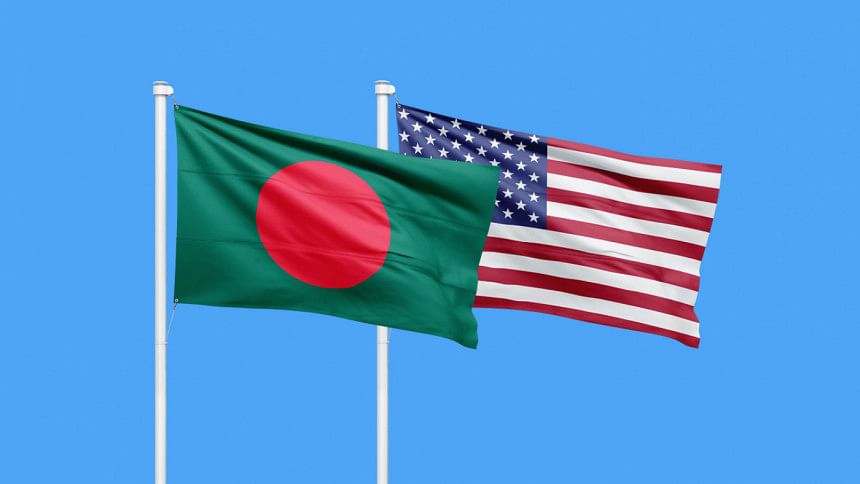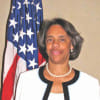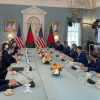Expectations from the new US ambassador to Bangladesh

On April 4, 1972, Bangladesh and the US formally initiated their diplomatic ties after the latter recognised Bangladesh as a sovereign nation. Since then, bilateral relations between the two countries have come a long way, and improved to a great extent. US ambassadors to Bangladesh have traditionally played a crucial role in giving this bonding a solid footing. The same role is now expected of Peter D. Haas, who has replaced Earl R. Miller as the new US ambassador to Bangladesh.
In this article, we will underline several expectations from the ambassador regardless of the outcome of today's Partnership Dialogue in Dhaka, the first of a series of bilateral meetings set to determine the next course of relationship between Bangladesh and the US. It should be noted that in February, amid diplomatic and media uproar about the US sanctions on Rapid Action Battalion (Rab), Secretary of State Antony Blinken invited Foreign Minister AK Abdul Momen to Washington to celebrate the golden jubilee of their diplomatic relations. As we await further developments in this regard, here are some expectations from a citizen's point of view, which the new US envoy will hopefully help bring to fruition to take our bilateral ties to a new height.
For the US, Bangladesh is one of its major partners in South Asia with extensive bilateral cooperation on trade, investment, climate change, counterterrorism, and so on. After Afghanistan and Pakistan, Bangladesh is the third-largest beneficiary of the US aid in the region. The two-way trade between the two countries reached USD 9 billion in 2019. The US is the single-largest export destination for our ready-made garments (RMG), accounting for 83 percent of Bangladesh's total exports. In 2019, the US was the top source of Foreign Direct Investment (FDI) in Bangladesh. During the Covid-19 crisis, the US has contributed over USD 8 billion in assistance to Bangladesh, including USD 73 million in support of Bangladesh's Covid response. Also, Bangladesh has received about 61 million doses of vaccines, making it the highest recipient of US vaccine donations worldwide.
These figures are a testimony to the depth of bilateral bonding between the two countries. Although the recent sanction on Rab has surprised Bangladesh, their bilateral ties overall remain intact and functional as before. We expect that Ambassador Haas will take proactive steps to create a middle ground for both countries that will lead to a resolution of the sanction. Also, we hope that the ambassador, in concert with the rest of the free world, will push the effort to ensure the repatriation of stranded Rohingyas in Bangladesh back to their homeland.
Since the Burmese military-orchestrated genocide through a bloody "clearance operation" in 2017, Bangladesh has been generously hosting more than 1.2 million Rohingyas. These refugees have put huge socioeconomic pressure on an already overpopulated country of approximately 166 million. It is inconceivable that Bangladesh can continue hosting this huge number of refugees for long with its limited land and financial capability. The new US envoy can work to convince the Biden administration to find a sustainable and dignified solution that will work for both the host and Rohingya communities.
According to the Centre for Policy Dialogue, around USD 7 billion would be required to host and support the Rohingyas in Bangladesh for the first five years without repatriation. Although the international community extended their support to Bangladesh, the humanitarian assistance fund for the Rohingyas has been drying up dramatically in recent years. It is impossible for a developing country like Bangladesh to bear this huge financial burden on its own. Here, Ambassador Haas can convince the US to play the role of a catalyst to ensure regular financial flow, especially on behalf of the Western world.
Meanwhile, Bangladesh is scheduled to graduate from the Least Developed Country (LDC) group in 2026. This will limit Bangladesh's access to many LDC-specific preferential treatments and facilities, e.g. loss of duty-free and quota-free market access (DFQF), which will have a negative impact on our exports, especially of RMG, to European and North American markets. Ambassador Haas may help Bangladesh in convincing the US government to ensure continuation of DFQF, even after graduation, to confront its post-graduation challenges.
We are living in an interconnected world in which what happens to one country may very well impact another. It is especially true for countries like the US and China. In recent years, China has exhibited extensive strategic interest in Bangladesh and invested heavily in the country's physical infrastructure. As the US envisions playing a greater role in the Indo-Pacific region, Bangladesh's location in this could embolden the US to check China's strategic advances. Despite that, Washington continues to see Dhaka from the prism of New Delhi. In the US's South Asia policy calculation, Bangladesh rarely exists. It is expected that the new ambassador will fathom the profound geopolitical deconstruction that is underway in the region, and pursue Washington to recognise the strategic significance of Bangladesh.
Bangladesh also expects that the new ambassador will work to transform the existing bilateral relations into a strategic partnership in which Bangladesh will be considered on its own merit. Apart from economic benefits, a strategic partnership with Bangladesh can help the US to gain its strategic objectives in South Asia that go well beyond India. And the realisation of all of these aspirations will depend to a large extent on the cordial efforts of Peter D. Haas.
Hussain Shazzad is a foreign policy analyst.

 For all latest news, follow The Daily Star's Google News channel.
For all latest news, follow The Daily Star's Google News channel. 








Comments